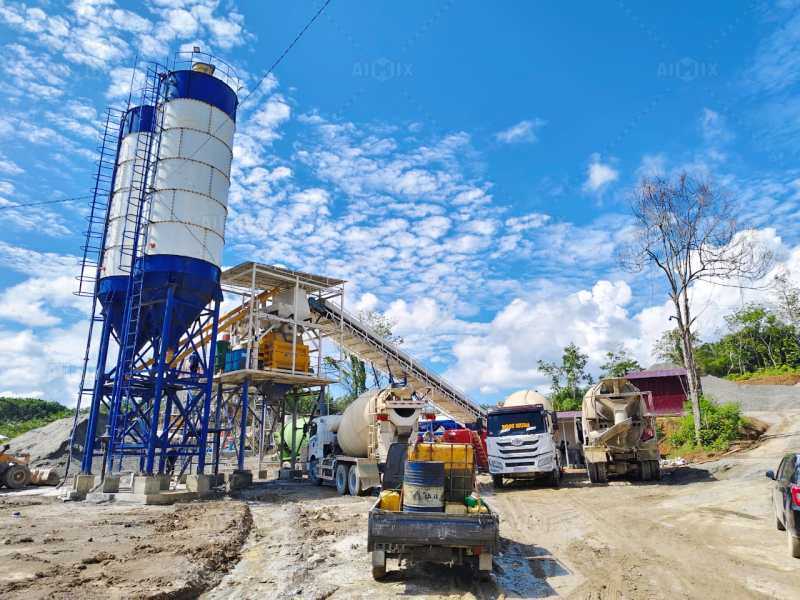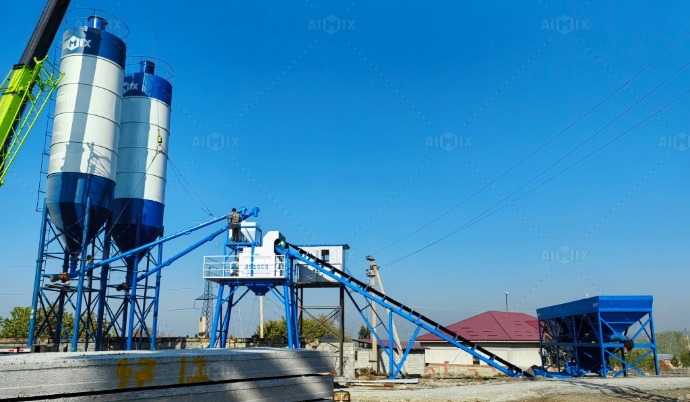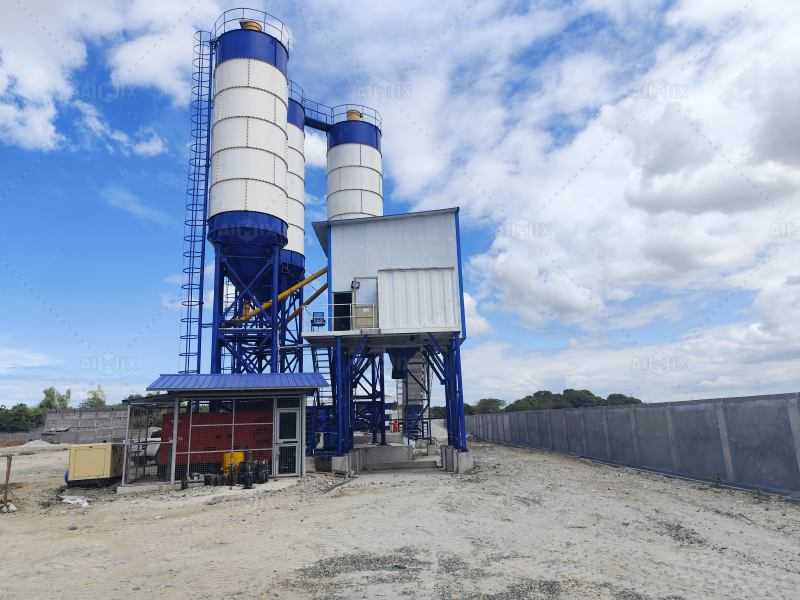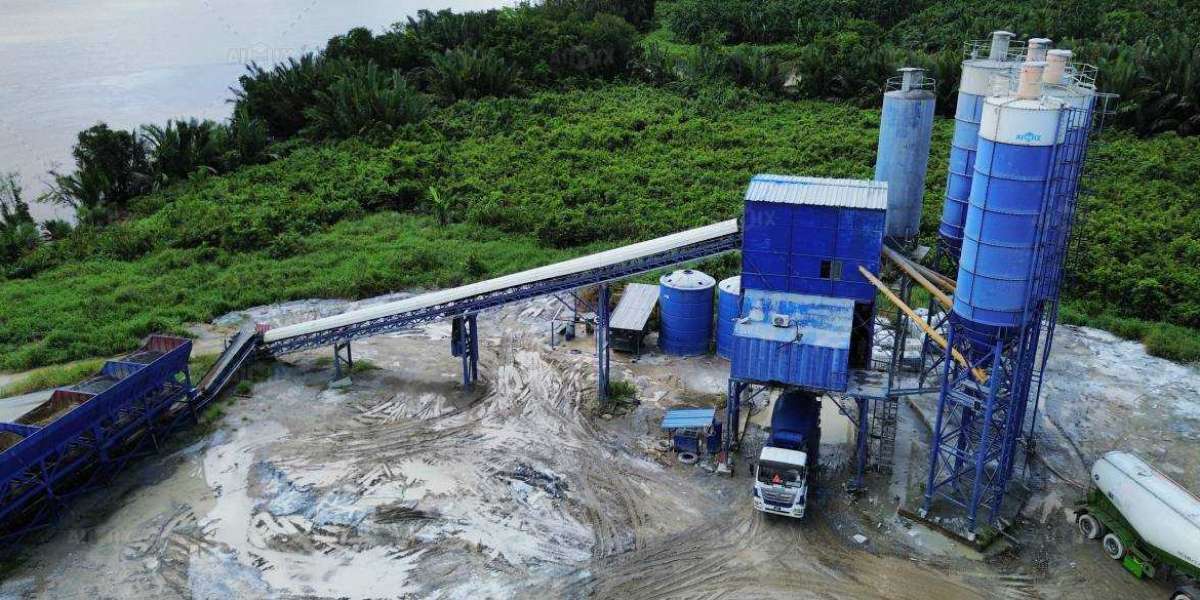As the construction industry in the Middle East continues to boom, with major infrastructure projects, real estate developments, and urban expansion, the demand for efficient, high-quality concrete has surged. One critical component of this demand is the batching plant, a key piece of equipment used in mixing and preparing concrete for various construction purposes.
But what is batching plant, and how is it shaping the Middle East’s construction market? In this article, we will explore the growing demand for batching plants, particularly the role of concrete mixer plants, in the region's infrastructure development. We'll also highlight key trends and innovations driving the market forward.

What is a Batching Plant?
A batching plant is a facility that mixes various ingredients to produce concrete in a controlled and efficient manner. The ingredients, including aggregates (sand, gravel), cement, water, and sometimes additives, are mixed in specific proportions to ensure high-quality concrete that meets various strength and durability requirements.
Batching plants come in different types, such as stationary, mobile, dry mix, and wet mix plants, with each designed to serve specific construction needs. Concrete mixer plants are particularly essential in preparing ready-mix concrete (RMC), which is then transported to the construction site for immediate use. These plants can operate on a small scale or large-scale, depending on the output capacity.
Growing Demand for Concrete in the Middle East
The Middle East has become one of the fastest-growing construction markets in the world. Countries like the United Arab Emirates, Saudi Arabia, Qatar, Kuwait, and Oman have experienced significant infrastructure growth over the past two decades. This includes the construction of skyscrapers, stadiums, residential communities, highways, airports, and even entire cities.
The region’s booming construction sector relies heavily on concrete for these ambitious projects. Batching plants, especially concrete mixer plants, play a central role in producing the ready-mix concrete required for such large-scale developments.

Key Trends in the Middle East Construction Market
1. Increased Demand for High-Quality Concrete
As construction projects in the Middle East grow in complexity and scale, the demand for high-quality concrete has escalated. Concrete needs to meet specific standards for strength, durability, and environmental performance. This is where batching plants come in.
Batching plants, particularly concrete mixer plants, ensure the precise mixing of ingredients to produce consistent concrete quality. Advanced automatic batching systems allow for the exact measurement of all components, reducing human error and ensuring the concrete produced meets stringent quality standards.
2. Rise of Smart and Automated Batching Plants
One of the most significant trends in the Middle East’s concrete industry is the integration of automation and smart technologies in batching plants. Automation systems help optimize production processes, increase plant efficiency, and reduce operating costs.
Smart concrete mixer plants are equipped with advanced control systems that monitor and adjust the mixing process in real-time. This improves accuracy and reduces waste, ensuring that each batch of concrete meets the required specifications. Furthermore, automation reduces labor costs, making batching plants more cost-efficient.
3. Sustainability and Eco-Friendly Concrete Production
Sustainability has become a major focus in construction worldwide, and the Middle East is no exception. The region is placing greater emphasis on reducing the environmental impact of construction activities, including concrete production.
Many batching plants are adopting sustainable practices, such as using recycled aggregates and minimizing water consumption during the mixing process. Additionally, some plants are incorporating green technologies such as energy-efficient equipment and alternative fuels to reduce their carbon footprint. The trend towards eco-friendly concrete mixer plant is expected to continue as environmental regulations become stricter.
4. Expansion of Mobile Batching Plants
Given the nature of construction projects in the Middle East—often spread across vast areas or remote locations—mobile batching plants have become increasingly popular. These plants are portable, easy to set up, and capable of producing high-quality concrete at the point of use.
Mobile concrete mixer plants can be transported to various job sites, reducing transportation costs and improving the speed at which concrete is delivered to construction sites. This is particularly advantageous for projects like roads, bridges, and remote housing developments, where accessibility and efficiency are critical.
5. Focus on Cost-Effectiveness and Quick Production
As the competition in the Middle East construction market intensifies, contractors are increasingly looking for ways to reduce costs and improve efficiency. Batching plants, especially concrete mixer plants, are being developed with cost-effective features that allow for faster production times and lower operational costs.
With the use of automated control systems, batching plants can produce large volumes of concrete quickly while minimizing waste. This allows contractors to meet tight deadlines without compromising on quality, which is crucial in large-scale infrastructure projects.
6. Increasing Role of Precast Concrete
Precast concrete, which is produced in a batching plant and then transported to the site for assembly, is gaining traction in the Middle East. This method speeds up construction timelines and ensures higher-quality concrete products due to controlled manufacturing conditions.
Concrete mixer plants are essential for the production of precast concrete, which is used in the construction of components like walls, floors, and beams. The growing demand for precast concrete in large-scale projects like skyscrapers, shopping malls, and industrial buildings is further driving the need for advanced batching plants in the region.

Conclusion
As the Middle East continues to grow as a global construction hub, the importance of batching plants—particularly concrete mixer plants—cannot be overstated. With the rising demand for high-quality concrete, advancements in automation, a focus on sustainability, and the growing popularity of mobile and precast concrete solutions, batching plants are evolving to meet the challenges of the region’s dynamic construction market.
Investing in modern batching plants offers contractors the ability to produce consistent, high-quality concrete efficiently, reducing costs, and meeting tight deadlines. As construction projects in the Middle East become more ambitious, batching plants will continue to be at the heart of the region’s concrete production strategy.







